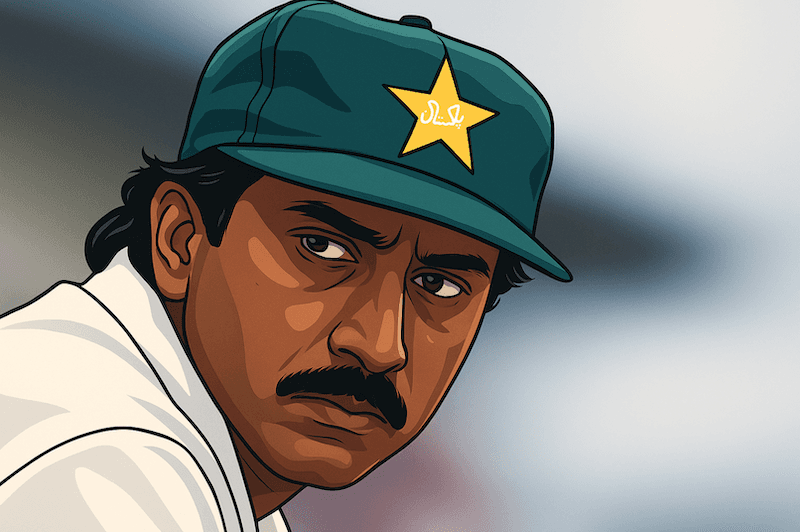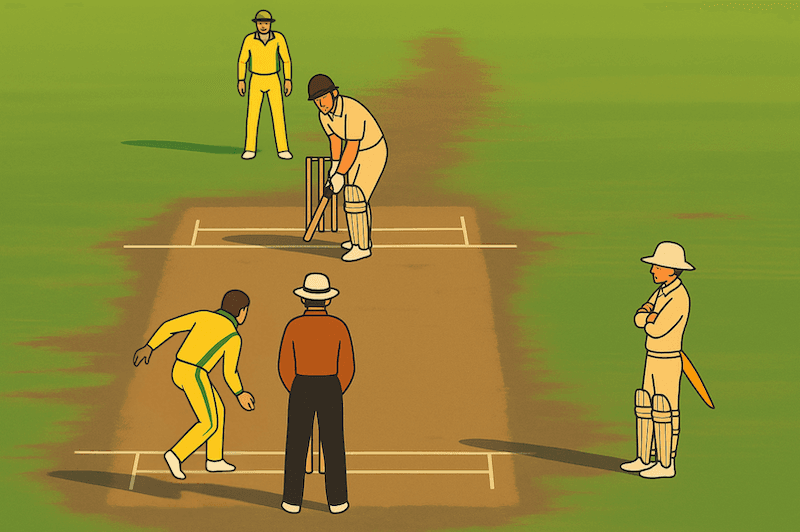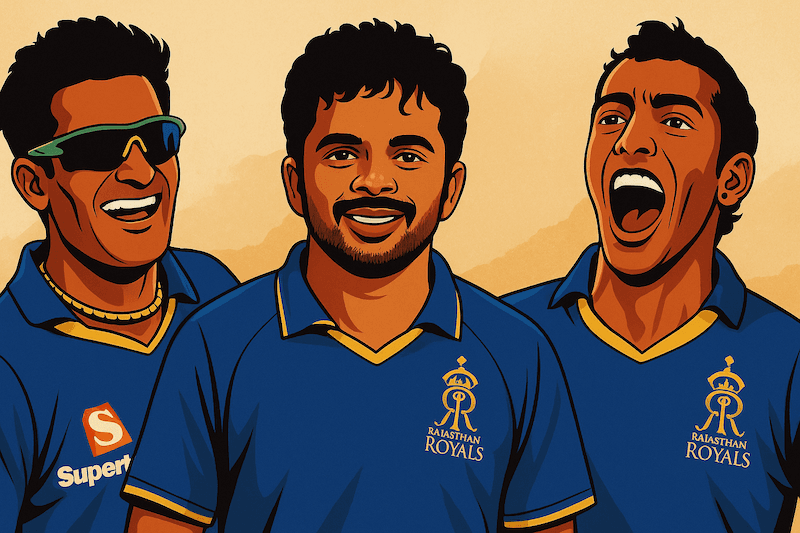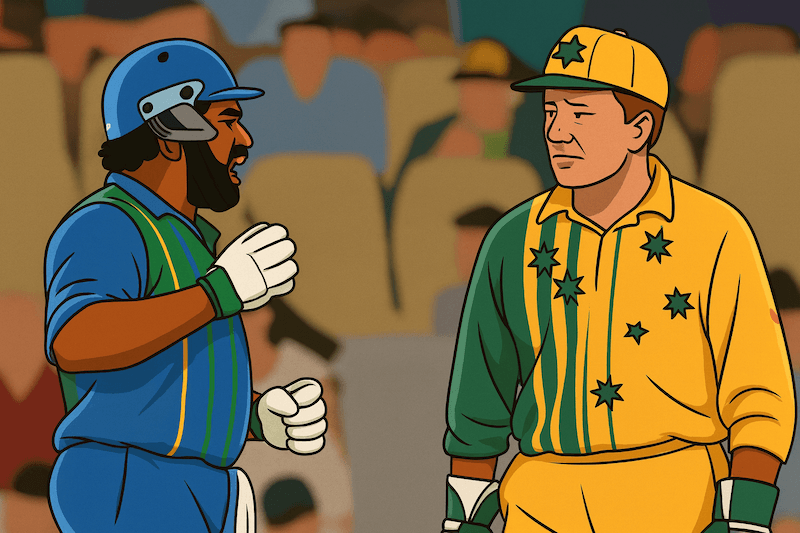
In the 1990s, Pakistan’s stylish batsman Salim Malik was known for his classy strokes and cool temperament. Fans admired his timing and grace at the crease. But behind the cheers, a storm was building — one that would shake the very soul of cricket.
What started as small rumours of bribery soon turned into a major scandal, pulling in star players, officials and entire cricket boards. When it was all over, Malik’s career lay in ruins — from captain and hero to outcast, he became the first Pakistani cricketer ever banned for life.
The Beginning of Trouble (1994–1995)
- In 1994, during Australia’s tour of Pakistan, Shane Warne, Mark Waugh, and Tim May claimed that captain Salim Malik had offered them about $200,000 each (≈ £135,000) to underperform in the Karachi Test — a charge that stunned the cricket world.
- Soon after, vice-captain Rashid Latif and Basit Ali quit the team, accusing Malik of corruption. Latif’s bold stand shook the cricket world and gave real weight to the fixing rumours.
- Around the same time, Warne and Waugh were secretly fined by the Australian Cricket Board (ACB) for taking money from an Indian bookmaker, “John the Bookmaker”. They had shared pitch and weather details during the 1994 Sri Lanka tour. The fines, imposed in 1995 but revealed only in 1998, later exposed the ACB’s hypocrisy, since both players had accused Malik of bribery soon after.
- In 1995, the bribery story finally went public. The three Australians gave sworn statements repeating their claims against Malik, putting fresh pressure on him and the Pakistan Cricket Board (PCB) to respond.
- Later that year, a Pakistani court cleared Malik for lack of evidence. The ICC chose not to intervene, leaving the controversy for the Pakistan Cricket Board (PCB) to handle, as frustration and suspicion grew among fans.
The Investigation Begins (1996-1998)
- As rumours kept growing, the Pakistan Cricket Board (PCB) launched an inquiry into Salim Malik, Wasim Akram, and Ijaz Ahmed, but it led nowhere. Meanwhile, Rashid Latif kept raising his voice, demanding a full probe into match-fixing within the team.
- By 1998, the PCB handed its findings to the government, naming Malik, Akram, and Ijaz among players who needed closer scrutiny. This pushed the government to set up a judicial inquiry, led by Justice Malik Mohammad Qayyum, to dig deeper into the widening scandal.
- The inquiry heard testimony from players, officials, and bookmakers. During Australia’s 1998 tour of Pakistan, Mark Waugh and Mark Taylor confirmed their earlier claims against Salim Malik. Waugh also admitted past dealings with bookmakers, already known to the ACB, while Steve Waugh wasn’t called at that stage.
- The investigation then uncovered key evidence from bookmaker Saleem Pervez, who confessed to paying Salim Malik and Mushtaq Ahmed $100,000 to fix a match in Sharjah. His statement gave the scandal real weight and credibility, leaving no doubt that cricket’s integrity was under serious threat.
The Verdict (1999–2000)
- As the inquiry ended, new evidence surfaced — player statements, bookmaker confessions, and money trails showing deep corruption. Ata-ur-Rehman claimed Wasim Akram asked him to bowl badly in a 1994 ODI in Christchurch, but his later retractions made him unreliable.
- In May 2000, Justice Malik Mohammad Qayyum released his report, naming Salim Malik the “central figure in match-fixing”. Malik was banned for life and fined 1 million rupees (≈ £12,500). Ata-ur-Rehman was also banned for life for lying under oath and fined Rs 100,000.
- Seven players including Wasim Akram, Waqar Younis, Inzamam-ul-Haq, Saeed Anwar, Mushtaq Ahmed, Akram Raza and Ata-ur-Rehman were fined for poor cooperation. Akram and Mushtaq paid Rs 300,000 each, others Rs 100,000. The report gave Akram the benefit of doubt but urged his removal as captain.
- Salim Malik called the verdict unfair, claiming innocence. But the damage was done — cricket saw its first lifetime ban for fixing, and Pakistan’s image was left in ruins.
Explore More Stories
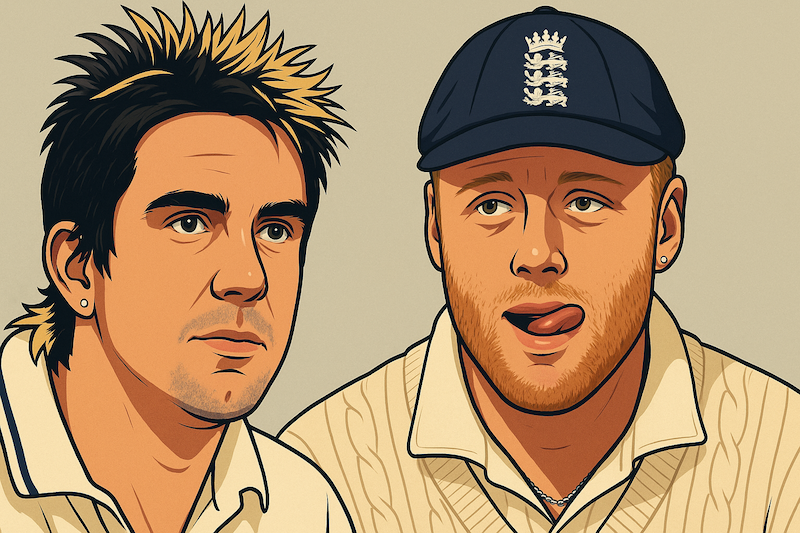
2005 Ashes: The Summer Cricket Became Theatre
The 2005 Ashes was more than just a cricket series. It was a rollercoaster of emotion, courage, and unforgettable moments that brought Test cricket back to life. England’s long wait finally ended, and the world watched history unfold.
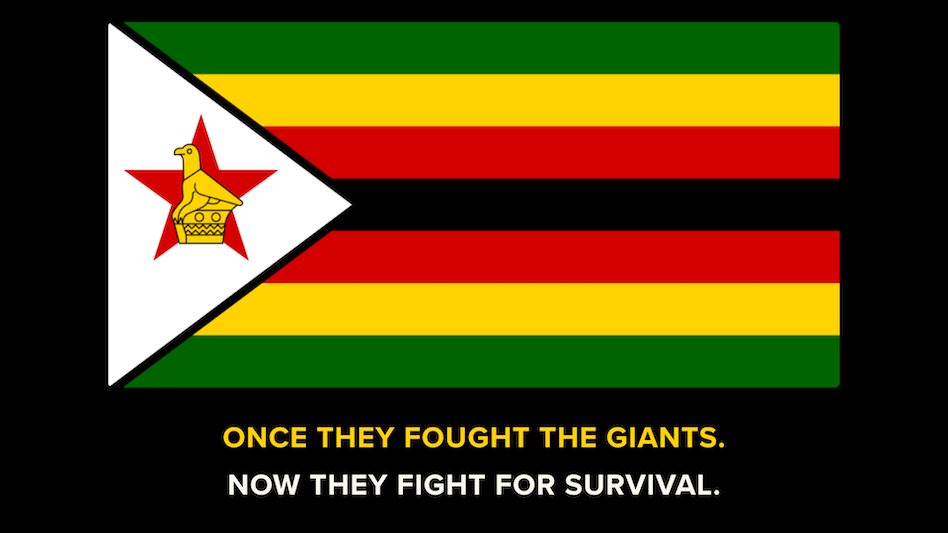
What Happened to Zimbabwe Cricket? The Rise, Fall, and Fight for Survival
Once they challenged the world’s best, now they struggle to stay afloat. Zimbabwe cricket’s journey from the glory of 1999 to years of chaos and heartbreak is a story of politics, power, and lost pride, and of a nation still dreaming of revival.
Legacy (2000–Present)
- After the verdict, Salim Malik disappeared from cricket. He kept claiming innocence, calling himself a scapegoat. The lifetime ban ended his playing days and cut off all ties with the sport.
- In 2008, a Lahore civil court overturned his ban, declaring it invalid. But the PCB and ICC refused to reinstate him, citing unanswered questions about transcripts of suspicious meetings linked to fixing.
- In 2020, Malik publicly apologised, admitting his mistakes and asking for another chance. The PCB responded that he must first give a full explanation regarding those old meeting transcripts before being considered for any cricket role.
Final Note
The scandal left a deep mark on Pakistan cricket and the game worldwide. It exposed the sport’s fragile ethics and pushed boards to tighten anti-corruption measures. Decades later, Salim Malik’s story still stands as a warning — talent can make you great, but integrity keeps you remembered.
